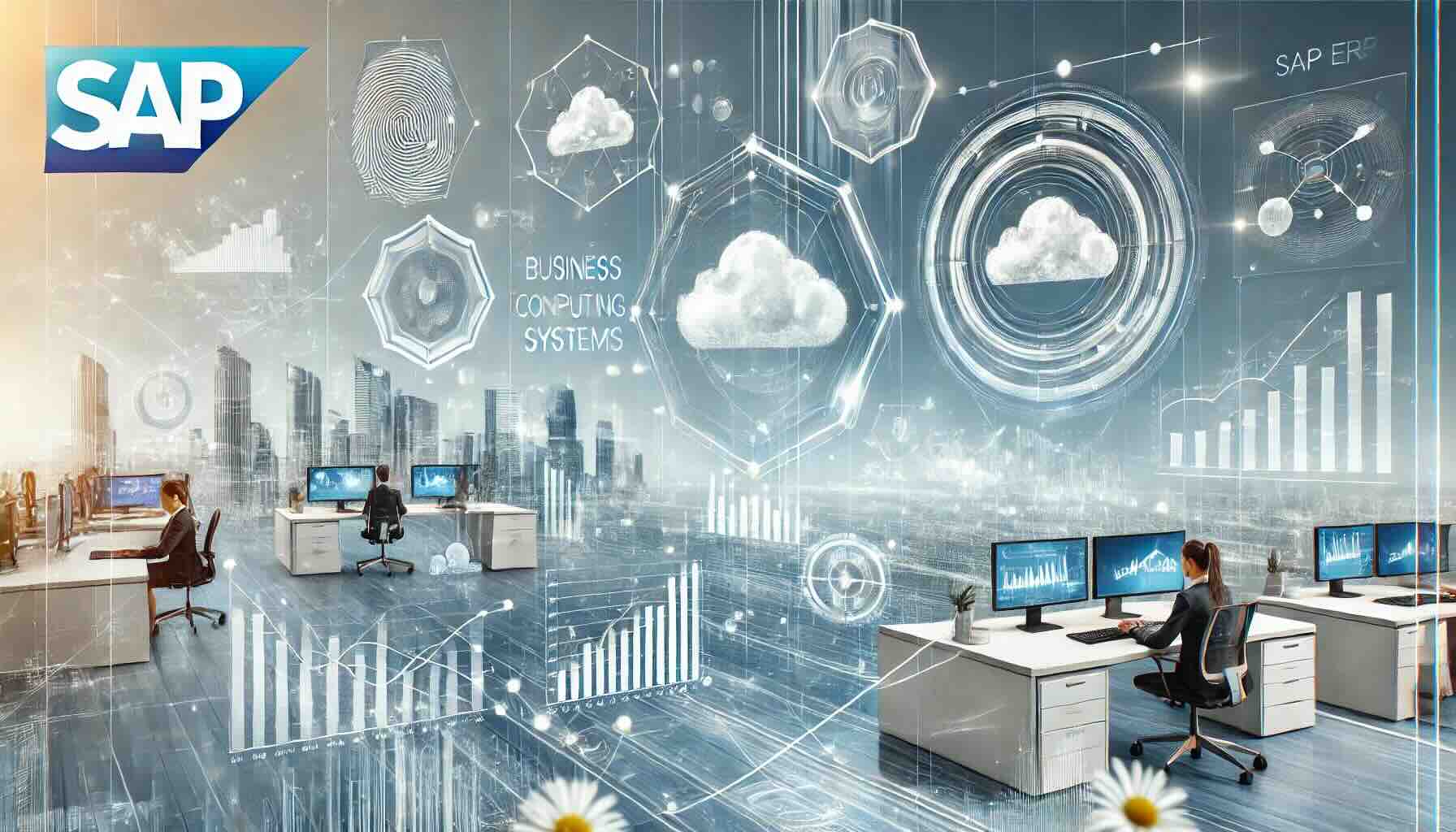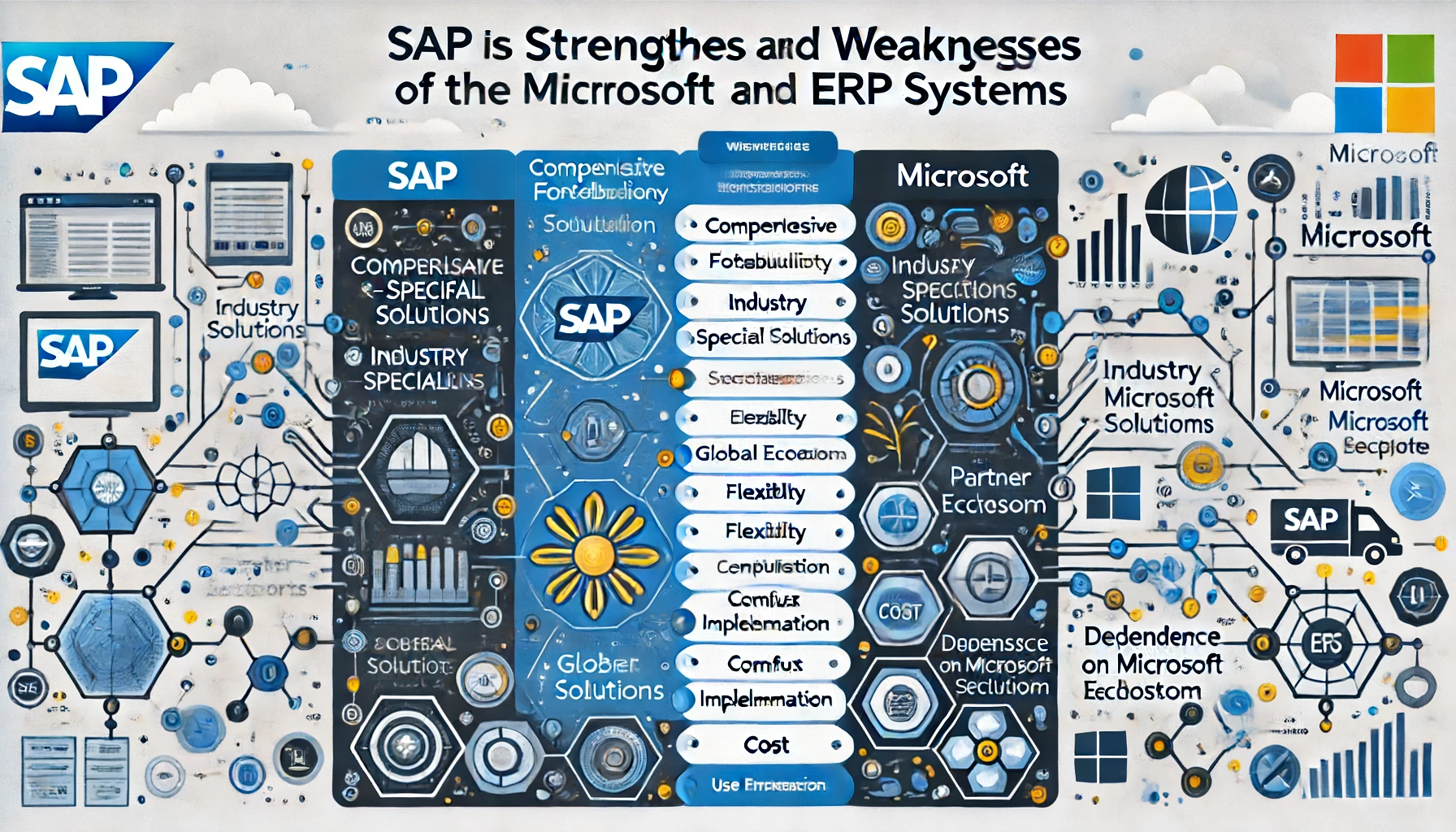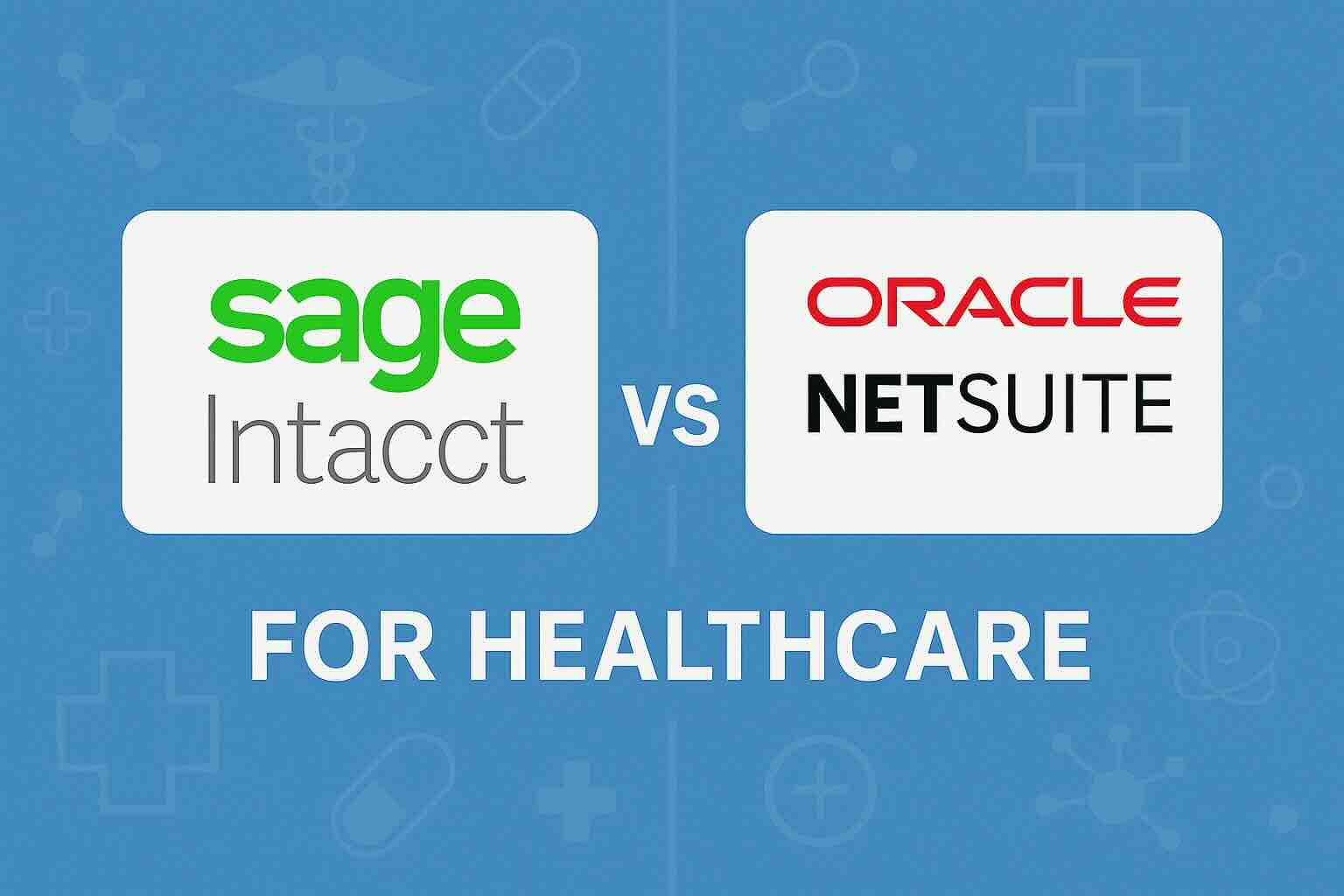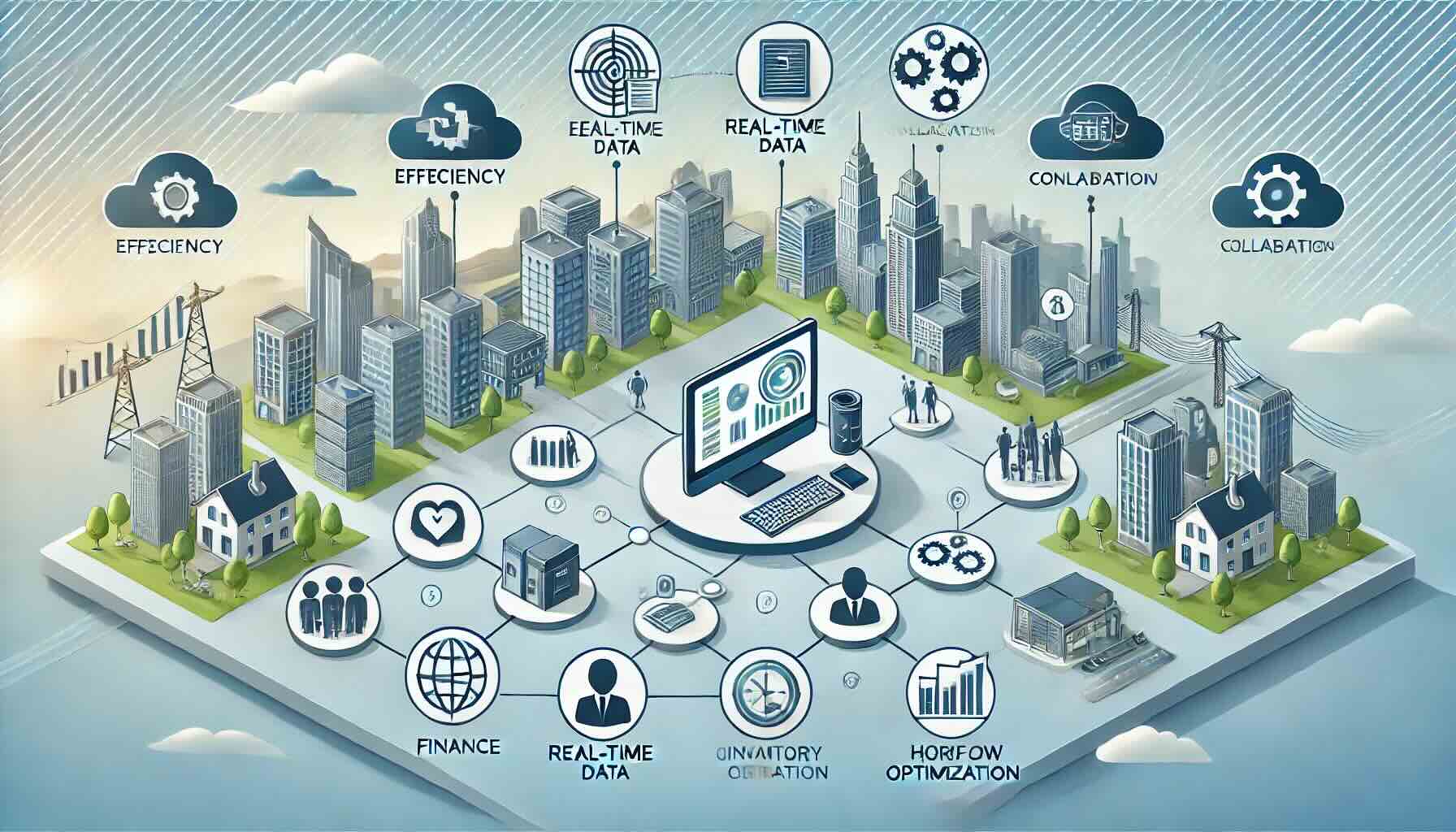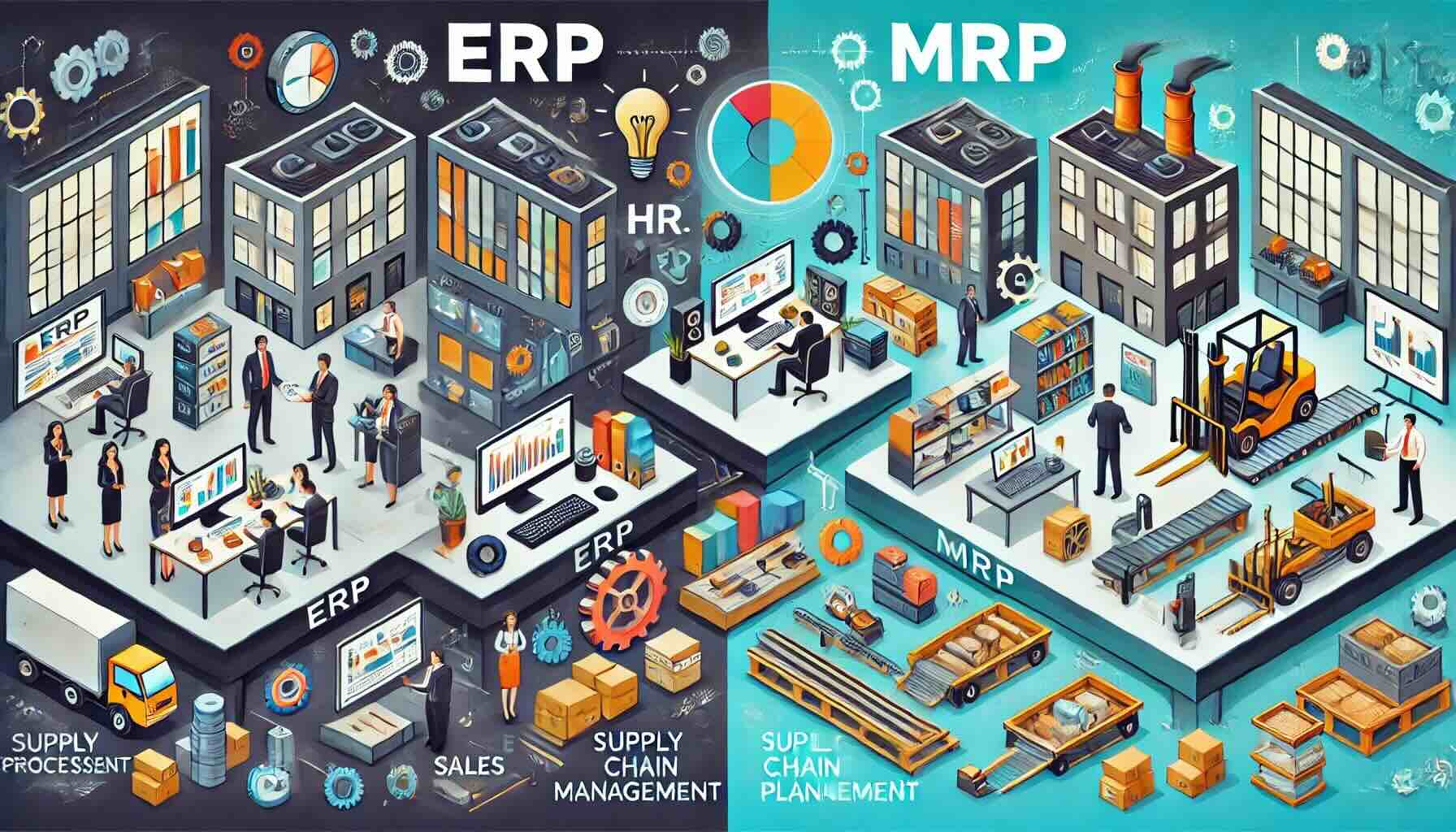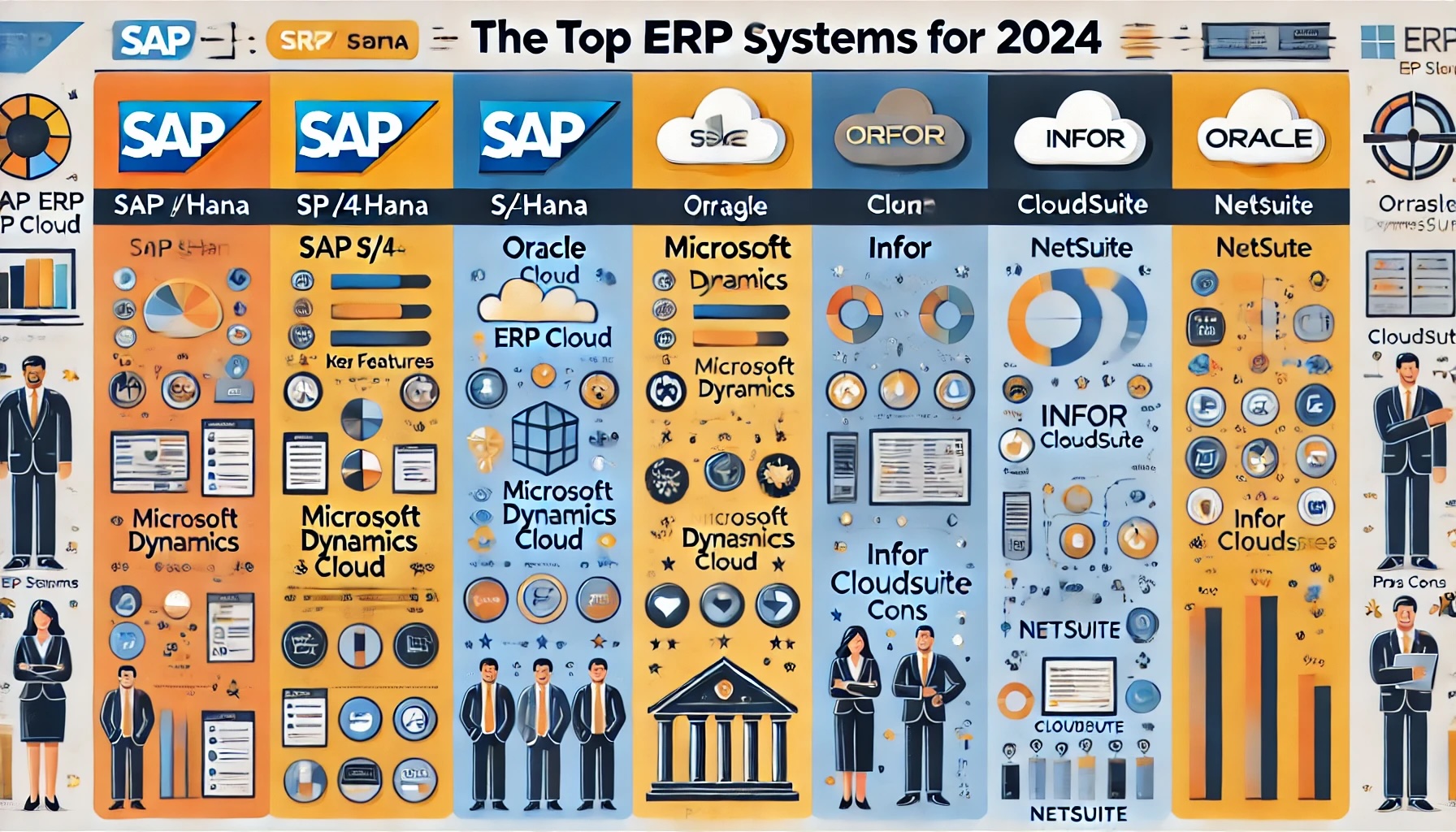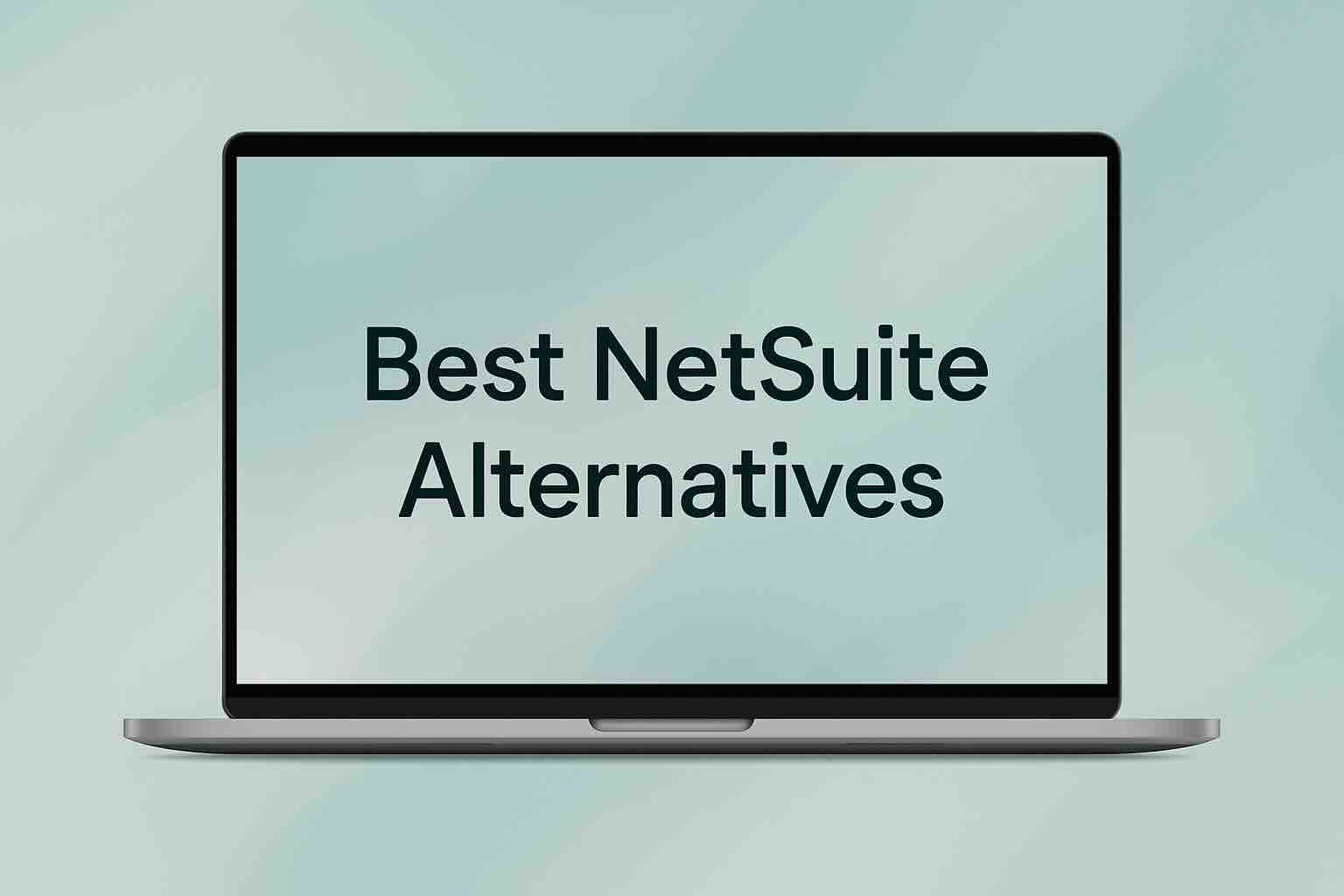Compare the Best ERP Software for Small and Medium Enterprises
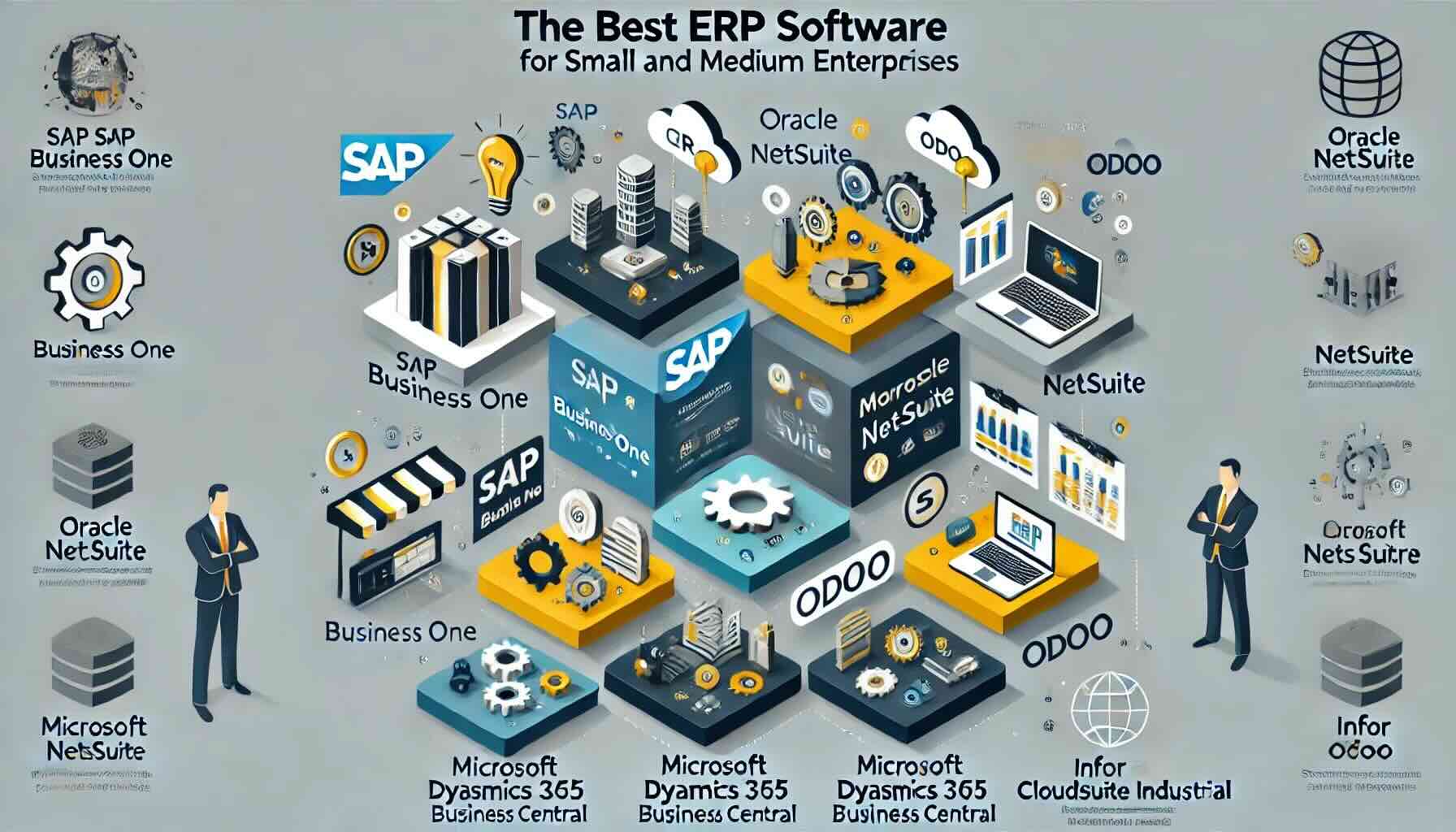
In the rapidly evolving business landscape, small and medium enterprises (SMEs) must adopt efficient and integrated systems to streamline operations, improve decision-making, and maintain competitiveness. Enterprise Resource Planning (ERP) software plays a crucial role in this process by integrating various business functions into a single, cohesive system. This blog compares the best ERP software for small and medium enterprises, providing detailed insights to help you choose the right solution for your business.
Introduction
Selecting the best ERP software for small and medium enterprises can significantly impact business efficiency, resource management, and growth potential. With numerous ERP solutions available, it’s essential to identify which ones offer the most value for SMEs. This blog provides a comprehensive comparison of top ERP software options, highlighting their features, benefits, and suitability for small and medium-sized businesses.
1. SAP Business One
- Overview: SAP Business One is a comprehensive ERP solution designed specifically for SMEs, offering a single, integrated platform to manage core business functions. It encompasses financial management, sales, customer relationships, inventory control, and distribution processes. With real-time data and analytics, it enhances decision-making and operational efficiency. The system is highly customizable and scalable, allowing businesses to tailor it to their specific needs and expand as they grow. Additionally, its user-friendly interface and strong support network make it accessible for businesses looking to streamline their operations and improve overall productivity.
- Key Features:
- Financial Management: Real-time financial operations, including accounting, banking, and reconciliation.
- Sales and Customer Management: Manage sales processes, customer data, and after-sales support.
- Inventory and Distribution: Real-time inventory management, warehouse control, and distribution tracking.
- Reporting and Analytics: Customizable dashboards and reports for informed decision-making.
- Integration: Seamless with Microsoft Office and third-party applications.
- Benefits:
- Scalability: Grows with your business needs.
- Customizability: Tailored to specific business requirements.
- User-Friendly Interface: Easy to navigate and learn.
- Support and Training: Extensive online resources and customer support.
- Cons:
- Cost: Can be expensive, especially for small businesses with limited budgets.
- Complexity: May require significant time and resources to implement and customize.
- Hardware Requirements: May require additional hardware investments for optimal performance.
- Best For:
- SMEs seeking a robust, scalable solution with comprehensive features.
2. Oracle NetSuite
- Overview: Oracle NetSuite is a cloud-based ERP solution that provides a unified business management suite, including ERP/financials, CRM, and e-commerce. Designed to streamline operations and improve efficiency, NetSuite offers comprehensive financial management, order processing, supply chain visibility, and integrated e-commerce capabilities. Its advanced analytics and real-time data access enable informed decision-making. Being a cloud-based solution, it reduces IT costs and allows remote access, making it a flexible and scalable option for growing businesses. The extensive customization options and strong support network further enhance its appeal for SMEs looking for a comprehensive ERP solution.
- Key Features:
- Financial Management: Comprehensive accounting and financial planning.
- Order Management: Streamlined order processing and fulfillment.
- Supply Chain Management: End-to-end supply chain visibility and management.
- E-commerce Integration: Unified management of online and offline sales channels.
- Advanced Analytics: Real-time data access and robust reporting tools.
- Benefits:
- Cloud-Based: Reduced IT costs and remote access.
- Customizability: Flexible to fit various business models.
- Real-Time Data: Enhanced decision-making capabilities.
- Support Network: Strong community and customer support.
- Cons:
- Cost: Subscription-based pricing can be high, especially for smaller businesses.
- Complexity: May require a steep learning curve and dedicated training.
- Customization Challenges: Extensive customization may require professional services.
- Best For:
- SMEs seeking a cloud-based, comprehensive solution with strong financial and supply chain management capabilities.
3. Microsoft Dynamics 365 Business Central
- Overview: Microsoft Dynamics 365 Business Central is an all-in-one business management solution that integrates financials, sales, service, and operations. It offers robust accounting and financial reporting, tools for improving sales and customer engagement, and project management capabilities. The system’s supply chain management features enhance inventory and warehouse efficiency, while AI-driven insights support better decision-making. Seamless integration with other Microsoft products ensures a cohesive user experience, making it ideal for businesses already utilizing Microsoft tools. Its scalability and user-friendly interface make Dynamics 365 Business Central a practical choice for SMEs aiming for integrated and efficient business operations.
- Key Features:
- Financial Management: Comprehensive accounting and financial reporting.
- Sales and Service Management: Tools to manage sales processes and customer engagement.
- Project Management: Features for tracking project performance and profitability.
- Supply Chain Management: Efficient inventory and warehouse management.
- AI-Driven Insights: Enhanced decision-making with AI capabilities.
- Benefits:
- Integration: Seamless with Microsoft Office 365 and other Microsoft products.
- Scalability: Accommodates business growth.
- User-Friendly: Intuitive interface for ease of use.
- Support: Extensive training resources and Microsoft customer support.
- Cons:
- Cost: Licensing and implementation can be costly.
- Complexity: May require professional assistance for setup and customization.
- Customization Limits: Some customization options may be limited compared to other ERP systems.
- Best For:
- SMEs already using Microsoft products and seeking an integrated solution.
4. Odoo
- Overview: Odoo is an open-source ERP solution offering a suite of business applications, including CRM, e-commerce, billing, accounting, manufacturing, warehouse, project management, and inventory management. Its modular design allows businesses to start with essential modules and expand as needed, making it highly customizable and scalable. Odoo’s open-source nature ensures cost-effectiveness and flexibility, with a strong community support network providing regular updates and enhancements. The platform’s user-friendly interface and extensive functionalities make it an excellent choice for SMEs seeking a versatile and affordable ERP solution to manage diverse business processes efficiently.
- Key Features:
- Modular Design: Start with essential modules and add more as needed.
- CRM: Manage customer relationships and sales opportunities.
- Inventory and MRP: Optimize inventory levels and manufacturing processes.
- Accounting: Comprehensive financial management and reporting.
- Marketing Tools: Manage marketing campaigns and track performance.
- Benefits:
- Open-Source: Highly customizable and adaptable.
- Cost-Effective: Affordable with no licensing fees.
- Community Support: Extensive community and regular updates.
- User-Friendly: Easy to use with a wide range of functionalities.
- Cons:
- Customization Complexity: Extensive customization may require technical expertise.
- Support: Limited professional support compared to proprietary solutions.
- Integration Challenges: Integrating with other systems may require additional work.
- Best For:
- SMEs looking for a flexible, cost-effective, and customizable ERP solution.
5. Infor CloudSuite Industrial (SyteLine)
- Overview: Infor CloudSuite Industrial (SyteLine) is a robust ERP solution specifically designed for manufacturing and service industries. It offers comprehensive tools to manage end-to-end processes, including advanced planning and scheduling, inventory and warehouse management, and customer relationship management. The financial management features provide accurate and real-time financial reporting, while analytics and business intelligence tools enable data-driven decision-making. Being cloud-based, it offers accessibility and reduces IT overhead. Infor CloudSuite Industrial’s industry-specific functionalities, scalability, and strong support make it ideal for SMEs in the manufacturing and service sectors.
- Key Features:
- Advanced Planning and Scheduling: Efficient production planning and resource utilization.
- Inventory and Warehouse Management: Real-time inventory tracking and optimized stock levels.
- Customer Relationship Management: Enhance customer service and manage interactions.
- Financial Management: Accurate financial reporting and budgeting.
- Analytics and Business Intelligence: Advanced tools for data-driven decision-making.
- Benefits:
- Industry-Specific Functionalities: Tailored for manufacturing and service industries.
- Cloud-Based: Reduces IT costs and provides remote access.
- Scalability: Supports business growth and evolving needs.
- Strong Support: Comprehensive customer support and continuous updates.
- Cons:
- Cost: Higher price point, potentially expensive for smaller businesses.
- Implementation Complexity: Can be complex to implement and configure.
- Customization Costs: Customizations may require additional investment.
- Best For:
- SMEs in the manufacturing and service industries seeking an industry-specific ERP solution.
Conclusion
Choosing the best ERP software for small and medium enterprises depends on your specific business needs, industry requirements, and budget. SAP Business One, Oracle NetSuite, Microsoft Dynamics 365 Business Central, Odoo, and Infor CloudSuite Industrial are all excellent choices, each offering unique features and benefits. Evaluate your business priorities, and select the ERP solution that best aligns with your goals to drive efficiency and growth.
To compare these ERP solutions and many more, you can use our new AI-powered Compare ERP tool. It’s free to use and you get a guaranteed discount on your first year’s licence fees with a referral from Compare ERP.
